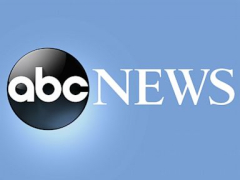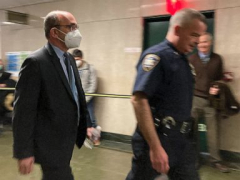NEW YORK — In the days following the fatal shooting of conservative activist Charlie Kirk, numerous workers have been fired for their comments on his death, among them MSNBC political analyst Matthew Dowd.
Several conservative activists have sought to identify social media users whose posts about Kirk they viewed as offensive or celebratory, targeting everyone from journalists to teachers. Right-wing influencer Laura Loomer said she would try to ruin the professional aspirations of anyone who celebrated Kirk’s death.
It’s far from the first time workers have lost their jobs over things they say publicly — including in social media posts. But the speed at which the firings have been happening raises questions about worker rights versus employer rights.
In the U.S., laws can vary across states, but overall, there’s very little legal protections for employees who are punished for speech made both in and out of private workplaces.
“Most people think they have a right to free speech…but that doesn’t necessarily apply in the workplace,” said Vanessa Matsis-McCready, associate general counsel and vice president of HR Services for Engage PEO. “Most employees in the private sector do not have any protections for that type of speech at work.”
Add to that the prevalence of social media, which has made it increasingly common to track employees’ conduct outside of work and to dox people, or publish information about them online with the intent of harming or harassing them.
Protections for workers vary from one state to the next. For example, in New York, if an employee is participating in a weekend political protest, but not associating themselves with the organization that employs them, their employer cannot fire them for that activity when they return to work.
But if that same employee is at a company event on a weekend and talks about their political viewpoints in a way that makes others feel unsafe or the target of discrimination or harassment, then they could face consequences at work, Matsis-McCready said.
Most of the U.S. defaults to “at-will” employment law — which essentially means employers can choose to hire and fire as they see fit, including over employees’ speech.
“The First Amendment does not apply in private workplaces to protect employees’ speech,” said Andrew Kragie, an attorney who specializes in employment and labor law at Maynard Nexsen. “It actually does protect employers’ right to make decisions about employees, based on employees’ speech.”
Kragie said there are “pockets of protection” around the U.S. under various state laws, such as statutes that forbid punishing workers for their political views. But the interpretation of how that gets enforced changes, he notes, making the waters murky.
Steven T. Collis, a law professor at the University of Texas at Austin and faculty director of the school’s Bech-Loughlin First Amendment Center, also points to some state laws that say employers can’t fire their workers for “legal





